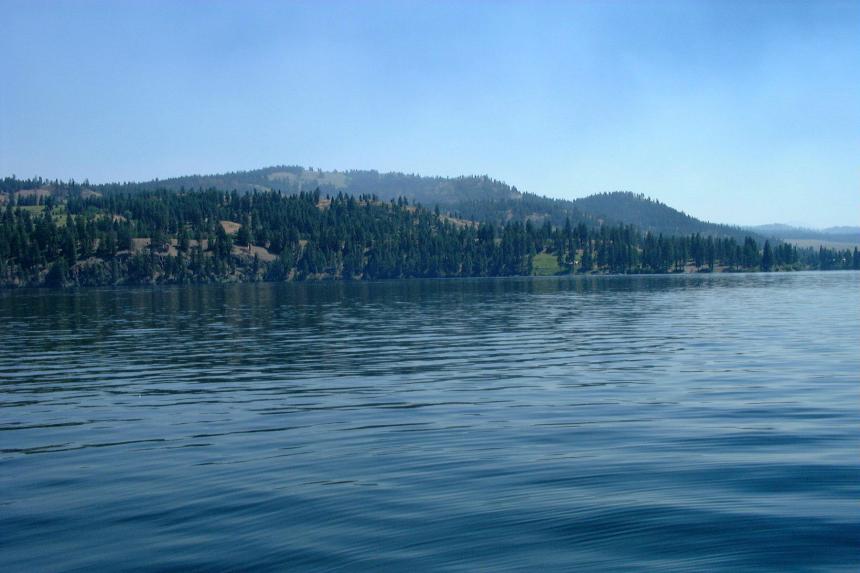Located four miles northeast of Republic, along Highway SR-21, this body of water has a year-round open season. Spring and early summer fishing for planted fall fingerling and net-pen reared Rainbow Trout should be good. Largemouth Bass are caught in summer and fall. Tiger Muskies are planted annually to help control the Northern Pikeminnow population and provide additional angling opportunity. Yellow Perch were illegally introduced around 2011, and have since become very abundant. There are no size restrictions or daily limit for Yellow Perch, and anglers are encouraged to harvest them. Camping, picnicking, and public boat access are all available at Curlew Lake State Park and private resorts. The Curlew Lake State Park and at least one private resort also provide access for ice fishing during the winter.
Two-pole fishing is allowed
Good for ice fishing
Shoreline access: Good - There is a public fishing dock and fair shoreline access at Curlew Lake State Park.
Species you might catch
- Chiselmouth
- Largemouth bass
- Northern pikeminnow
- Peamouth
- Rainbow trout
- Smallmouth bass
- Tiger muskie
- Yellow perch
- Kokanee
Lake information
County: Ferry
Acreage: 861.40 ac.
Elevation: 2354 ft.
Center: 48.733529, -118.665976
Open in Google Maps
Catchable fish plants
| Stock Date | Species | Number Released | Number of Fish Per Pound | Facility |
|---|---|---|---|---|
| May 29, 2013 | Tiger Muskie | 422 | 1.8 | MESEBERG HATCHERY |
| May 28, 2012 | Tiger Muskie | 310 | 2 | MESEBERG HATCHERY |
| May 1, 2012 | Rainbow | 0 | 0 | CURLEW SD 050 |
| May 25, 2011 | Tiger Muskie | 400 | 2 | MESEBERG HATCHERY |
| Jun 1, 2010 | Tiger Muskie | 431 | 2.2 | MESEBERG HATCHERY |
| Jun 1, 2010 | Tiger Muskie | 431 | 2.8 | MESEBERG HATCHERY |
| May 26, 2009 | Tiger Muskie | 450 | 1.9 | MESEBERG HATCHERY |
| Jun 5, 2007 | Tiger Muskie | 150 | 2.1 | RINGOLD SPRINGS HATCHERY |
| Jun 13, 2006 | Tiger Muskie | 400 | 2.22 | RINGOLD SPRINGS HATCHERY |
| May 18, 2005 | Tiger Muskie | 600 | 2.6 | RINGOLD SPRINGS HATCHERY |
Fishing prospects calendar
Rainbow trout
Kokanee
Largemouth bass
Smallmouth bass
Yellow perch
Northern pikeminnow
Photos
